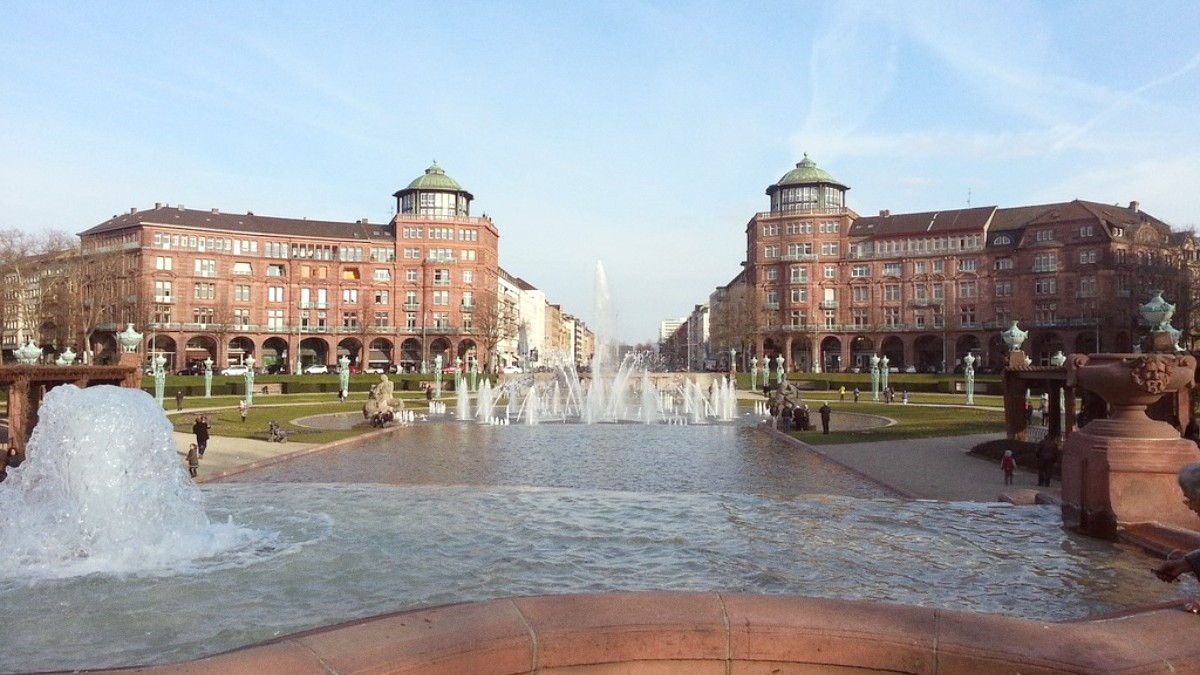
Baden Wurttemberg, Germany
Mannheim and the broader Rhine-Neckar region actively support environmental protection. Green spaces like Luisenpark and Herzogenriedpark reflect efforts to preserve urban nature.
Germany operates one of the world's most comprehensive recycling systems. Visitors follow these practices, separating paper, plastic, glass, and organic waste into designated bins.
Mannheim's tap water is safe and high quality. Use a reusable water bottle and refill from the tap rather than purchasing bottled water. Be mindful of your water consumption.
Protected areas and conservation initiatives demonstrate Germany's commitment to nature.
The nearby Palatinate Forest (Pfälzerwald) is an UNESCO Biosphere Reserve, emphasizing the region's commitment to protecting its natural heritage.
Utilize Mannheim's efficient public transport system (trams, buses, S-Bahn) extensively. This significantly lessens your carbon footprint compared to relying on taxis or rental cars.
Look for hotels or accommodation providers demonstrating a commitment to sustainable practices.
If booking guided tours, ask if the operator follows sustainable tourism principles.
Look for "Fair Trade" labels in shops for coffee, chocolate, clothing, and handicrafts. Inquire about product origin for souvenirs to verify ethical sourcing.
The Rainforest Site (GreaterGood)Consider reusable products from Package Free Shop. Explore sustainable outdoor gear from Patagonia.
PatagoniaBefore you leave, consider leaving a positive review for local businesses, hotels, or restaurants that delivered excellent service. This supports them and future travelers.
Supporting the local economy is a direct way to contribute positively to Mannheim.
Mannheim actively preserves its distinctive historical grid layout and significant Baroque architecture (like the Palace and Jesuit Church), despite extensive wartime damage.
A few guidelines for respectful interactions during your stay.
Prioritize supporting local, independent shops, family-run restaurants, cafes, and guesthouses rather than large international chains. This ensures your tourism spending directly benefits the local community.
Participate in local markets, like Marktplatz, for fresh produce and regional specialties directly from local producers and vendors.
Choose locally owned hotels or guesthouses if available; they often reinvest more money into the local economy.
Buy souvenirs and gifts directly from local artisans, craft shops, or independent boutiques for authentic items and to support livelihoods.
Ethical shopping and responsible practices bolster the community directly.
When visiting churches or other religious sites, dress modestly. This typically means having your shoulders and knees covered.
Germany has strong labor laws and social protections. Exploitation of workers in the tourism sector is less prevalent.
Prioritize supporting local, independent shops, family-run restaurants, cafes, and guesthouses rather than large international chains.
Buying souvenirs and gifts directly from local artisans, craft shops, or independent boutiques supports their livelihoods.
Germany operates with robust labor laws and social protections, contributing to a fair working environment.
Approach discussions about World War II and the Holocaust with sensitivity and respect. Memorial sites are places for quiet reflection.
Germans value punctuality. Be on time for appointments, reservations, or meetings. If you expect to be late, communicate this in advance.